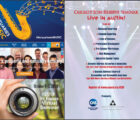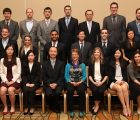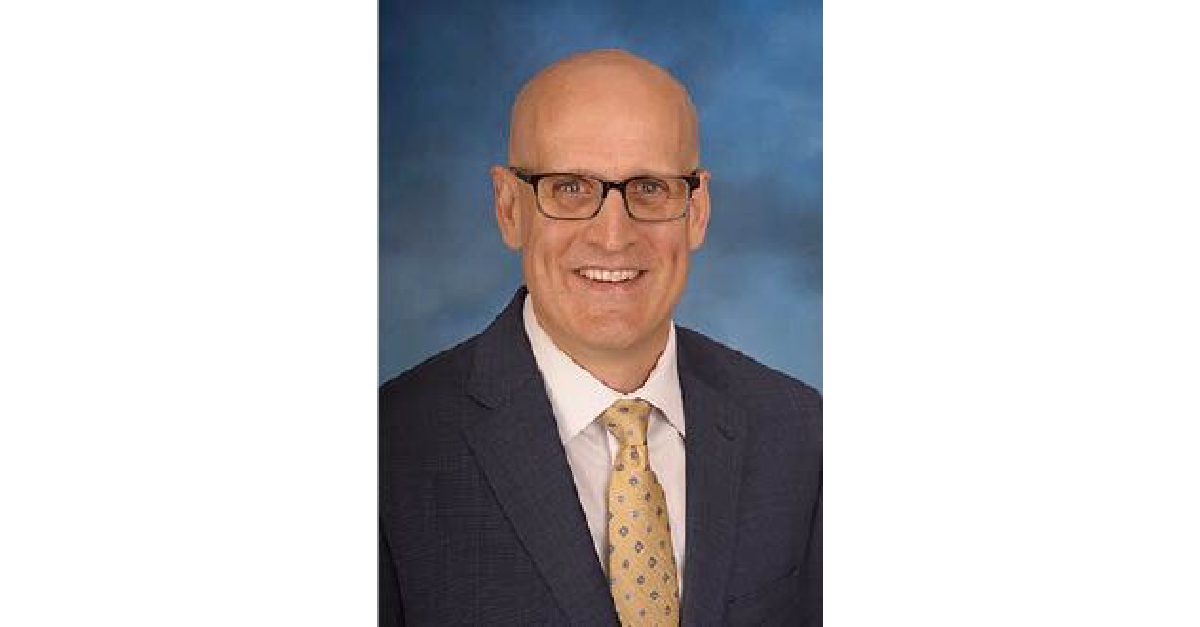While COVID-19 has been a major disruption to in-person continuing education (CE) across all professions, the CAS is poised to offer a full slate of in-person professional education programs, along with robust asynchronous online and live virtual offerings in 2023 and beyond.
The current environment continues to pose its challenges. Associations are rushing to return to in-person meetings, which is making it harder to secure locations because of the increased competition for meeting spaces. For that reason, the CAS is aggressively working to book locations and properties for 2024 and 2025 events after securing accommodations for the 2023 events. This will allow the organization to secure desirable locations and allow members and candidates to plan which events they want to attend further in advance.
“Pre-COVID, the CAS typically signed contracts for our largest events one and a half to two years in advance,” said Kathleen Dean, director of meeting services. “That timeframe helped us to better project attendance fluctuations and avoid being stuck with inflated room blocks and high meal function costs. Since the pandemic, we’ve been hesitant to sign contracts going out that far because of all the uncertainty surrounding business travel. If we assume wrong and have a contract signed, we face the risk of massive attrition and cancellation penalties from a hotel.”
While the CAS has held four large in-person events since the pandemic began, the organization had two other events planned as in-person that had to pivot to virtual: the 2022 RPM and 2022 Reinsurance Seminars. From that experience, it’s clear that the more contracts that are signed further in advance for upcoming events, the greater the financial risk should the business travel environment change.
The return to in-person events started with the 2021 Annual Meeting in San Diego, when the environment was still uncertain and tentative. The CAS received mixed reactions from the Employer Advisory Council on whether their organizations would support business travel for their employees, not to mention whether employees were willing to travel. Despite the ongoing concerns with COVID-19 and employer-paid travel, approximately 715 attendees participated in the meeting.
“Typically, we have a few cities targeted for a specific event,” Dean said. “For the 2021 Annual Meeting, we instead reached out to our various national sales representatives from all the major hotel chains and made an unusual request. This time we asked them to look at any hotel properties in the continental U.S., but we gave a strict list of conditions that would have to be met to enable us to truly partner with the hotel and share the financial risk. Dean said the two most risk-averse requirements requested were 50% guestroom attrition and 50% of the typical food and beverage minimum.
Attrition rate refers to the percentage of rooms that must be filled to avoid paying a penalty; typical guestroom attrition is 80%. Having a hotel offer 50% attrition means that if the organization held the program as planned/contracted and the CAS only had half the number of registrants expected, the CAS would not incur any attrition penalties. A food and beverage (F&B) minimum is the amount a group is required to spend on food and beverage to use a space. For an event the size of the Annual Meeting, a $350,000 F&B minimum is normal, but the 2021 Annual Meeting hotel partner offered half of that, or $175,000.
“This meant that if we only brought in half the people to use hotel rooms, and thus only ordered half the amount of food we planned to at the time of contract, we would not owe the hotel a penalty.” Dean said, “These gracious contractual terms gave us the breathing room we needed to feel comfortable during so much uncertainty.”
The CAS began offering in-person and online (hybrid) learning at all major events prior to COVID. At these events the first full day of education in one or two designated meeting rooms on-site is livestreamed to a virtual audience. The virtual registrants have a choice of two sessions and are encouraged to submit questions to the speakers in real time. Their registration fee is less and comes with fewer options but does offer quality, interactive continuing education. Conversely, the in-person registrants pay a higher registration fee, which comes with more options of sessions (typically six to eight sessions instead of just two), in addition to more opportunities to connect, network and interact.
“I find that it’s hardest to recreate the networking component of in-person events — the casual conversations while waiting for a session to begin, or serendipitous meetings in the hallways that lead to quality contacts,” Dean said. “We strive to improve the interactive components of our virtual offerings — some events lend more to networking than others. We also had to invest a great deal of time ahead of the events preparing speakers and attendees on the technology. This added significantly to the staff and volunteer labor needed to put on these virtual events.”
Despite the challenges of virtual events, many benefits surfaced quickly at the onset of the pandemic. “We avoided cancelling upcoming events and issuing refunds because we were able to offer an option to members stuck at home and looking for ways to fill time,” Dean said. “We had education ready and found ourselves with a captive and appreciative audience.”
The meetings services team also realized that there was pent-up demand for more virtual CE in addition to webinars, where there would be live audience interaction. Some members who could not attend in-person events were able to attend events virtually, so it opened CAS CE to another set of members.
CAS Professional Education Manager Nora Potter had piloted a virtual seminar in October 2019 and the CAS had an existing relationship with an online education vendor, which gave us an advantage. “We were able to get a jump on virtual education faster than most,” said Dean. “Because of Nora’s piloting the event pre-pandemic, while other organizations were starting from scratch to find a vendor and learn a platform, we were able to put our resources into informing our stakeholders and training staff to run the virtual events and then training speakers on the platform,” she said. “We have now streamlined the process for our speakers; everyone is overcoming the learning curve to using new technology.”
With rich experience in offering multiple platforms for CE, the CAS stands ready to serve its members in any learning environment.
“Like our members trying to account for future events, we don’t have the ability to see what the future of CAS CE events will look like,” she said. “However, we will continue to monitor the environment, track our trends, offer a mix of education delivery methods and remain nimble in case more pivots are in our future.”












